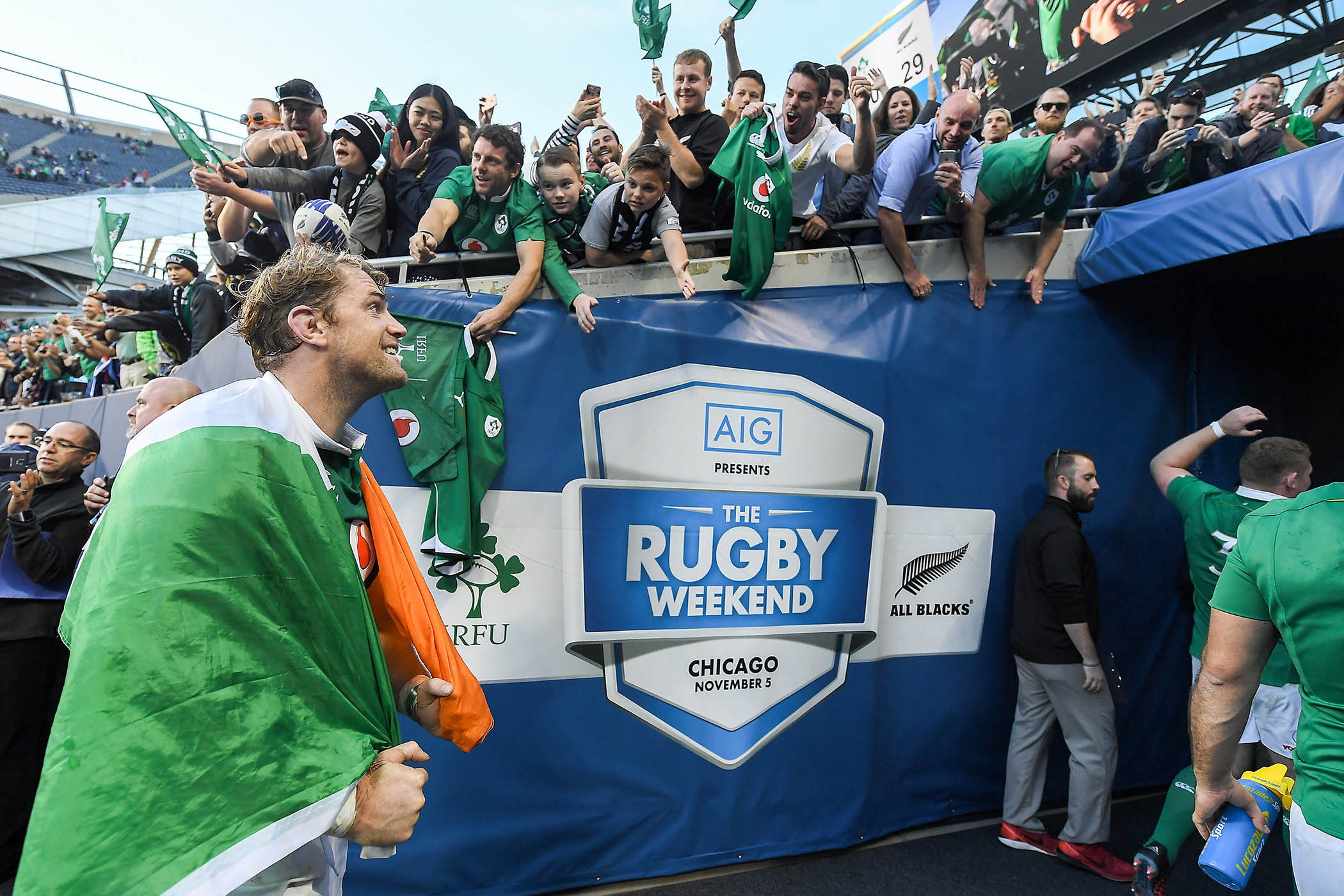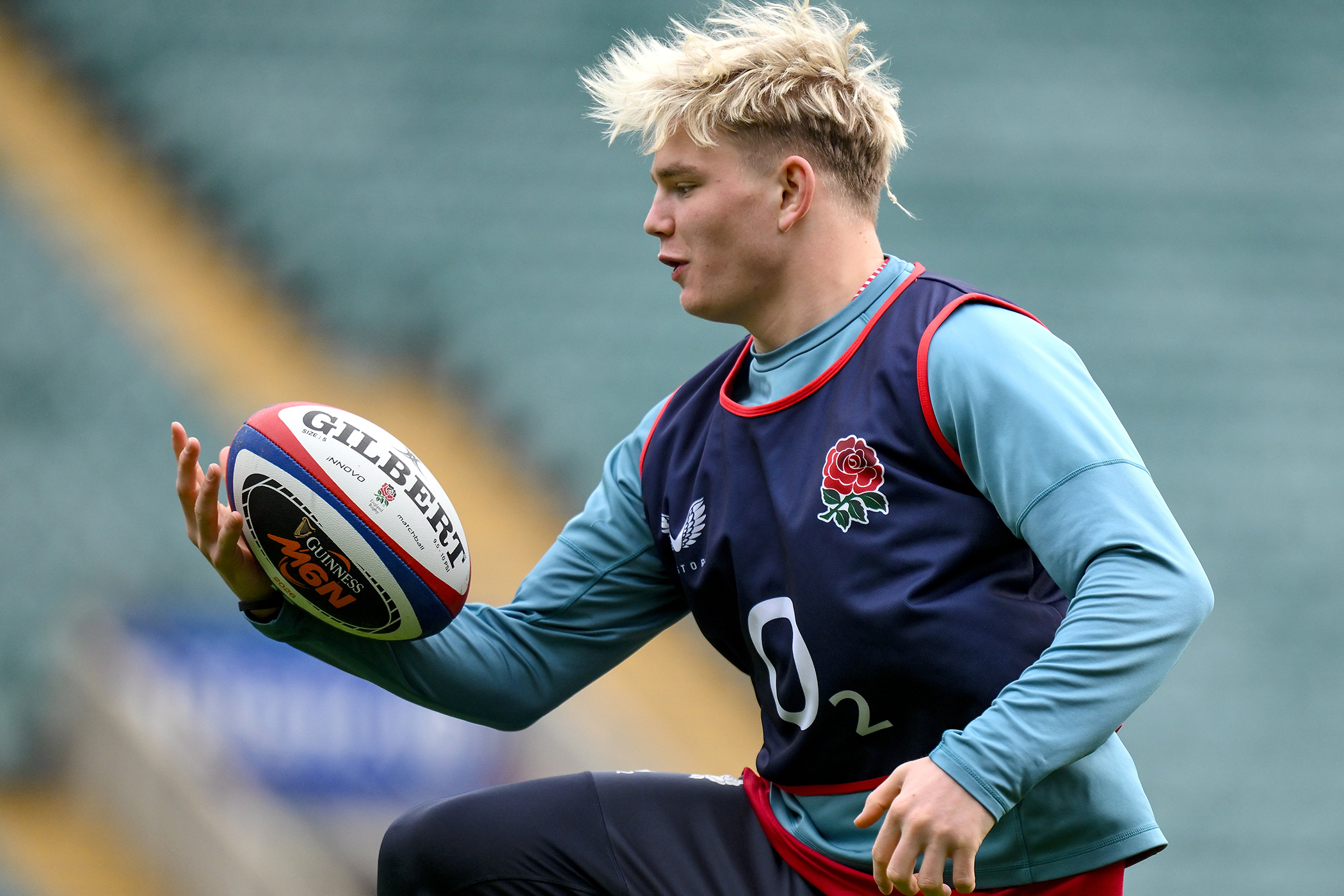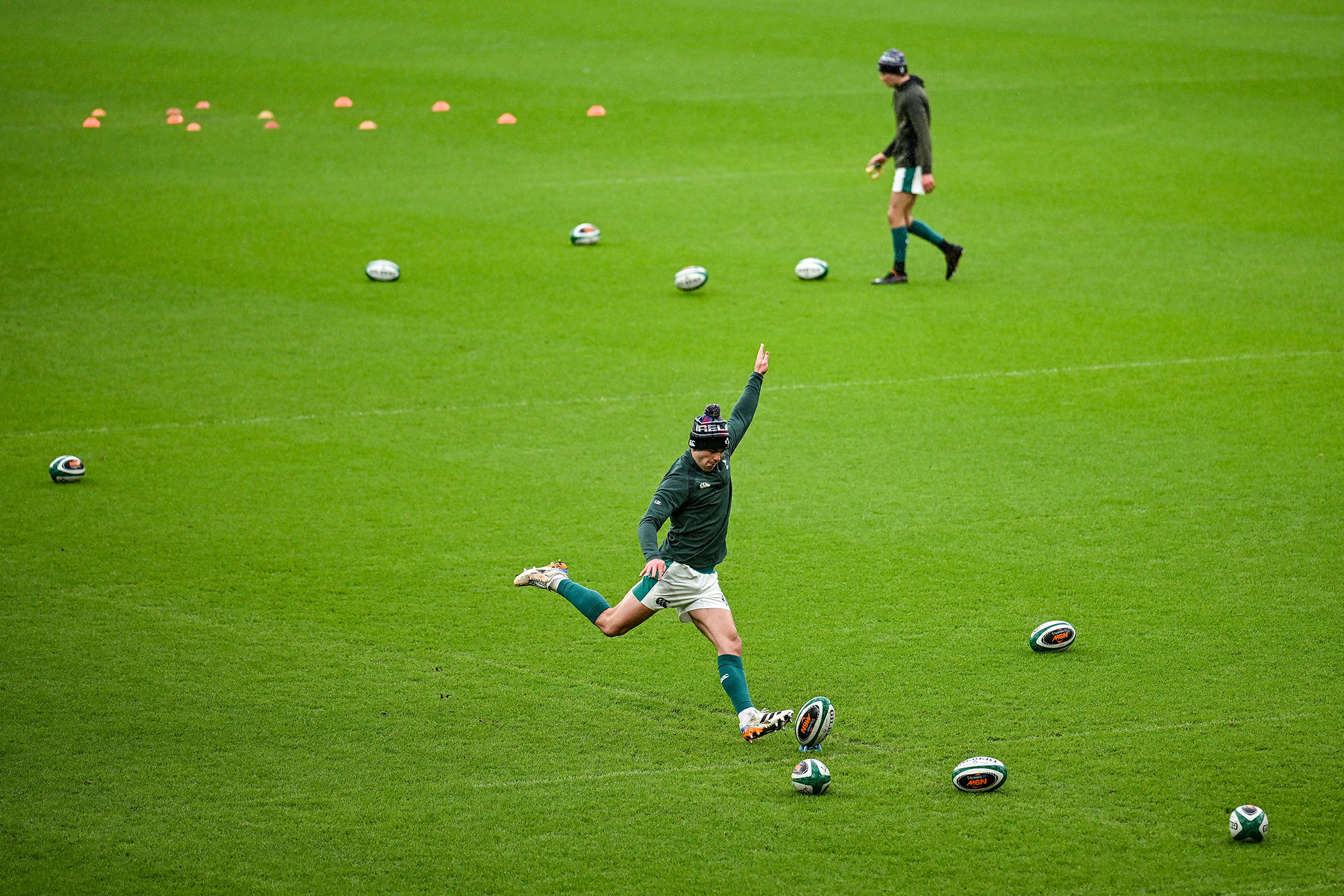England taking on Australia was not the only Test match in London on Saturday. One hour after proceedings began at Allianz Stadium, South Africa kicked off against Japan not in Pretoria or Cape Town, but 10 miles north of Twickenham at Wembley Stadium.
A boerewors and brandy invasion at the home of English football, tapping into London’s vast population of South Africans. Given there are about 230,000 South Africans in the UK, a fair chunk were at Wembley to cheer on their beloved Bokke. Tickets were even advertised on the South African High Commission’s website.
Ireland also faced New Zealand on Saturday night. Not at their usual home, the Aviva Stadium in Dublin, but at Soldier Field in Chicago, the setting of one of the greatest results in Irish rugby history when, in 2016, Ireland ended a 111-year wait and defeated the All Blacks for the first time.
New Zealand Rugby recently entered into a new partnership with US insurance giants Gallagher, but the All Blacks have been regular visitors to the United States in recent years, playing Test matches in Washington DC against the USA in 2021 and in San Diego last year, against Fiji. Those thrashings pale in comparison with the lure of the All Blacks’ return to Chicago – uncoincidentally where Gallagher are based – to face Ireland to play for, you guessed it, the first edition of the Gallagher Cup.
Winning over a new audience in the United States becomes a bit trickier when you hammer the struggling Eagles, but showcasing two of the best sides in the world at a sold-out Soldier Field? That seems more effective.
A source informed The Observer that the rematch in Chicago was set to be the highest-yielding Test match New Zealand Rugby had ever played in.
To pair an obvious question – why are teams doing this? – with a similarly obvious answer: as that source hinted, this is about money. The Springboks and All Blacks can make plenty of it by participating in Test matches overseas, given the strength of the pound and US dollar compared with the rand or NZ dollar.
Forgive the slight tangent into the intricacies of World Rugby’s regulation nine, but the wider context is worth mentioning here when we are discussing the importance of raising funds within the sport.
Under regulation nine, players must be released by their clubs in specific windows to play international rugby. In November, that window lasts for three weeks, which is why you will see France play only three Tests during that month, given the power of the Top 14 clubs. There is no flexibility.
Other teams however, such as England, Scotland and Wales, will play matches outside that official three-week window in order to generate more revenue, even though for Scotland and Wales that means being unable to pick any of their players based outside the country for those extra Tests due to regulation nine, given the clubs do not have to release them.
Newsletters
Choose the newsletters you want to receive
View more
For information about how The Observer protects your data, read our Privacy Policy
Hence why the Wallabies played at Twickenham without their Premiership-based players from Exeter Chiefs, Len Ikitau and Tom Hooper, along with arguably their best option at fly-half in James O’Connor (Leicester Tigers) and their world-class lock Will Skelton (La Rochelle).
The bottom line is that Scotland and Wales will continue to organise fixtures outside the window to keep topping up the coffers, even if their star players such as Finn Russell (Bath) and Louis Rees-Zammit (Bristol) are unavailable.
When Rees-Zammit was at Gloucester, before he left for the NFL, he spoke about his frustration having to watch Wales take on the All Blacks in Cardiff – “It would have been a dream come true” – not because he was unavailable due to injury or suspension, but regulation nine.
South Africa’s game with Japan is in fact a great example of the intricacies of rugby release windows. Bath prop Thomas du Toit is unavailable, but owing to SA Rugby’s good relationship with the Japanese clubs – where a number of their players earn far more than they could in South Africa – a release agreement has been struck, with seven of the Springboks’ starting XV at Wembley playing for Japanese sides.
As for why this game against Japan is happening in the first place, next week the Springboks are set to face France in Paris, the first time the two have met since their lively 2023 World Cup quarter-final. Having last played at the end of the Rugby Championship four weeks ago, Rassie Erasmus and the Springboks did not want to go into that game against France undercooked, and therefore requested for SA Rugby to organise a fixture for this weekend. As Erasmus said: “We’ve found in the past… we had a bit of a slow start because some of our players were based in Japan and hadn’t really played a lot of rugby.”
Following that request, a promoter will offer a fee and then keep the commercial rights – broadcast, tickets, food and beverages, sponsorship – to sell the fixture as well as they can. Once the promoter and stadium hire costs are paid, that additional revenue is extremely welcome.
Wembley was not even the first time that South Africa have played a fixture in London this year, after Argentina moved their “home” Rugby Championship fixture against South Africa to Twickenham.
It did not matter to the Argentine union, the UAR, that the ground was made up more or less of 90% South African supporters. The Argentine union, who approached the RFU, could make more money out of the 70,360 Twickenham crowd through higher ticket prices and the strength of the pound than if it hosted at its equivalent grounds in Córdoba or Buenos Aires, both with capacities under 60,000.
A revenue share model – different from using a promoter – between the RFU, UAR and SA Rugby meant everyone was a winner. Well, aside from the Argentina fans back home who wanted to watch the double world champion Springboks in action.
Unfortunately for those supporters, the money made from these international windows and now by trying to take those fixtures to more lucrative markets, props up the entire sport.
Photograph by Brendan Moran/Sportsfile via Getty Images



